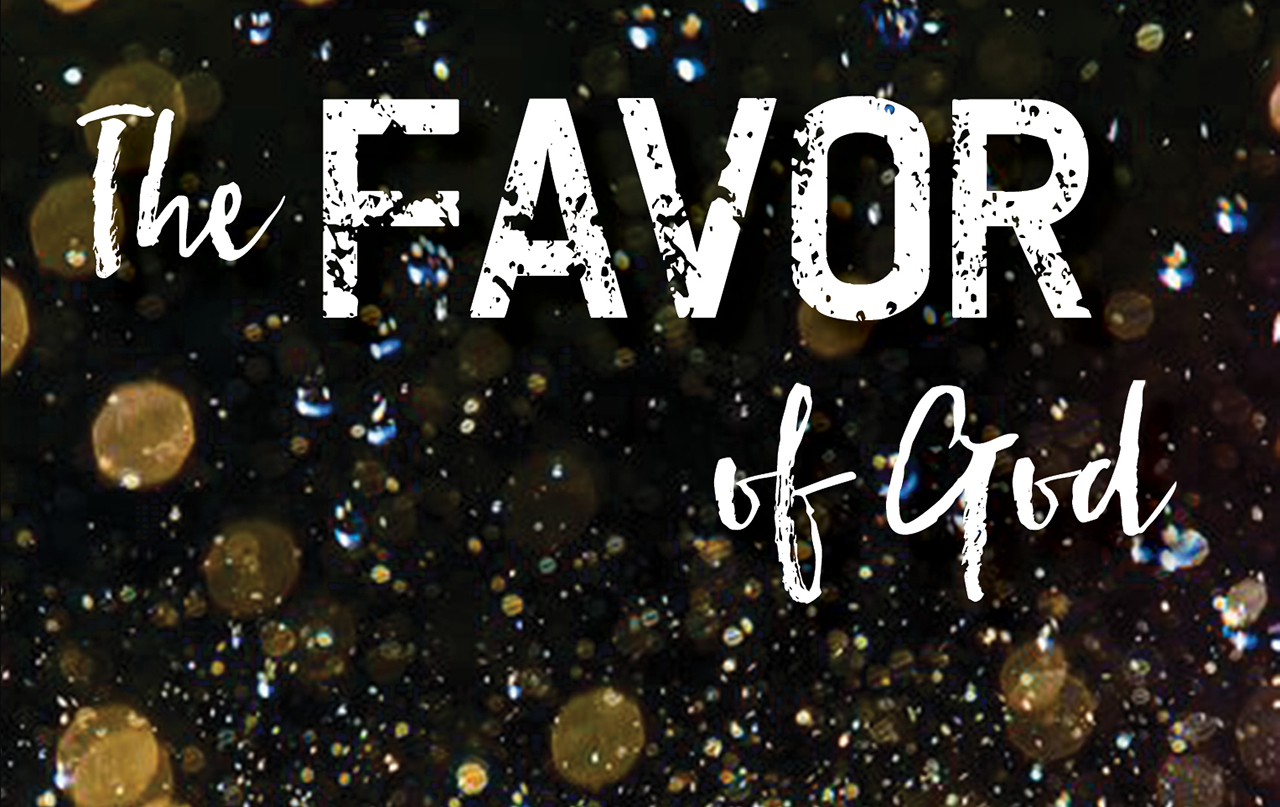Understanding The Power Of "It's A Favor": A Comprehensive Guide To Strengthening Relationships
Mar 23 2025
At its core, "it's a favor" is more than just a phrase—it’s a cornerstone of human interaction that fosters goodwill, trust, and mutual respect. Whether it’s lending a helping hand to a friend or extending assistance to a stranger, the act of doing a favor can create lasting bonds and enhance community spirit. In today’s fast-paced world, where personal connections are often overshadowed by technology, understanding the value of favors is crucial for building meaningful relationships. This article dives deep into the concept of "it's a favor," exploring its significance, psychological impact, and practical applications in everyday life.
The importance of favors cannot be overstated. They serve as a bridge between individuals, enabling collaboration and support in times of need. From small acts of kindness, such as holding the door open for someone, to significant gestures like offering professional advice, favors come in all shapes and sizes. What makes them truly special is their ability to transcend material value, focusing instead on the emotional and relational benefits they bring. By embracing the idea of "it's a favor," we can foster a culture of generosity and empathy.
As we delve further into this topic, you’ll discover how favors impact both the giver and the receiver, the ethical considerations involved, and strategies for navigating the delicate balance of reciprocity. Whether you’re looking to enhance your interpersonal skills or simply want to understand the role of favors in modern society, this article is designed to provide valuable insights and actionable advice. Let’s explore the world of "it's a favor" together.
Read also:Xhamster Tifton Explores Unveiling The World Of Exploration And Adventure
What Exactly Is "It's a Favor"?
In its simplest form, "it's a favor" refers to an act of kindness or assistance extended without any expectation of immediate reward or compensation. However, the concept is far richer than this basic definition. Favors can range from helping a colleague meet a deadline to volunteering at a local shelter. Each act carries with it an implicit understanding of goodwill, trust, and sometimes even a sense of obligation. Understanding the nuances of what constitutes a favor is essential for appreciating its role in our lives.
One key aspect of favors is their ability to create a ripple effect. When someone performs a favor, they often inspire others to pay it forward, creating a chain reaction of positive actions. For instance, if you help a neighbor carry groceries, they might feel inspired to assist someone else in need. This cycle of giving not only strengthens communities but also reinforces the idea that small acts of kindness can have a profound impact.
Why Does "It's a Favor" Matter?
The significance of "it's a favor" lies in its ability to strengthen social ties and build trust. In a world where transactions are often driven by self-interest, favors introduce an element of altruism that can transform relationships. For example, in professional settings, offering a favor to a colleague can lead to stronger teamwork and collaboration. Similarly, in personal relationships, favors can deepen emotional connections and foster loyalty.
- Favors promote mutual respect and understanding.
- They encourage people to think beyond their immediate needs.
- Favors can lead to unexpected opportunities and benefits.
Moreover, performing favors can have psychological benefits for the giver. Studies have shown that acts of kindness release endorphins, often referred to as the "helper's high," which contribute to overall well-being. This dual benefit—helping others while also improving one’s own mental health—makes favors a win-win situation.
Can "It's a Favor" Be Misused?
While the concept of favors is inherently positive, it’s not without its challenges. One potential pitfall is the misuse of favors for manipulative purposes. Some individuals may extend favors with the expectation of receiving something more valuable in return, leading to feelings of resentment or obligation. It’s important to approach favors with genuine intent and clear boundaries to avoid such complications.
Another issue is the imbalance of power that can arise in favor-based relationships. For instance, if one person consistently performs favors for another without reciprocity, it can create a sense of dependency or exploitation. To prevent this, it’s crucial to establish a healthy balance of give-and-take, ensuring that both parties benefit equally from the exchange.
Read also:Mike Lindell Net Worth Today The Untold Story Of A Business Mogul
How Can You Navigate the Ethics of "It's a Favor"?
When engaging in favors, it’s essential to consider the ethical implications of your actions. One way to ensure fairness is to communicate openly about expectations and intentions. For example, if you’re offering a favor, clearly state whether you expect anything in return or if it’s purely an act of kindness. Similarly, if someone offers you a favor, express gratitude and consider how you might reciprocate in the future.
Additionally, it’s important to recognize that not all favors are created equal. Some acts may require significant time or resources, while others may be relatively minor. By assessing the scale and nature of a favor, you can better determine its impact and ensure that both parties feel satisfied with the outcome.
How Do Favors Impact Relationships?
Favors play a critical role in shaping relationships, whether they’re personal, professional, or social. By extending a helping hand, you demonstrate your willingness to support others, which can lead to increased trust and collaboration. For instance, in romantic relationships, performing small favors like cooking dinner or running errands can strengthen emotional bonds and show appreciation for your partner.
In professional settings, favors can enhance team dynamics and foster a culture of mutual support. Imagine a workplace where colleagues regularly assist each other with tasks or share knowledge freely. Such an environment promotes productivity, creativity, and job satisfaction. However, it’s important to strike a balance between giving and receiving to maintain harmony within the team.
Can "It's a Favor" Lead to Unintended Consequences?
While favors generally have positive outcomes, they can occasionally lead to unintended consequences. For example, if someone performs a favor under duress or with hidden motives, it may strain the relationship rather than strengthen it. Similarly, if a favor creates an imbalance of power, it can lead to feelings of resentment or exploitation. To avoid these pitfalls, it’s crucial to approach favors with transparency and respect for all parties involved.
Why Should You Embrace "It's a Favor"?
Embracing the concept of "it's a favor" can bring numerous benefits to both individuals and communities. On a personal level, performing favors can enhance your emotional well-being, improve your social connections, and provide opportunities for growth. On a societal level, favors contribute to a culture of kindness and cooperation, which are essential for building strong, resilient communities.
To fully embrace favors, start by identifying areas in your life where you can offer assistance. Whether it’s helping a friend move, mentoring a colleague, or volunteering at a local organization, every act of kindness counts. Remember, the impact of a favor isn’t always immediate—it may take time for the full effects to become apparent. But with patience and sincerity, you can make a lasting difference in someone’s life.
What Are Some Practical Tips for Giving and Receiving Favors?
Here are some practical tips for navigating the world of favors:
- Be clear about your intentions: Whether you’re giving or receiving a favor, make sure your expectations are transparent.
- Set boundaries: Establish limits to ensure that favors don’t lead to exploitation or imbalance.
- Express gratitude: Always thank someone for their assistance, even if it’s a small favor.
- Reciprocate when possible: If someone has helped you, look for ways to return the favor in the future.
Conclusion: The Transformative Power of "It's a Favor"
In conclusion, "it's a favor" is more than just a phrase—it’s a powerful tool for building relationships, fostering goodwill, and creating positive change. By understanding the nuances of favors and approaching them with sincerity and respect, you can unlock their full potential. Whether you’re helping a friend, supporting a colleague, or volunteering in your community, every act of kindness has the power to transform lives. So the next time someone asks for a favor, remember the profound impact your assistance can have—and embrace the opportunity to make a difference.
Table of Contents
- What Exactly Is "It's a Favor"?
- Why Does "It's a Favor" Matter?
- Can "It's a Favor" Be Misused?
- How Can You Navigate the Ethics of "It's a Favor"?
- How Do Favors Impact Relationships?
- Can "It's a Favor" Lead to Unintended Consequences?
- Why Should You Embrace "It's a Favor"?
- What Are Some Practical Tips for Giving and Receiving Favors?
- Conclusion: The Transformative Power of "It's a Favor"
- Table of Contents

